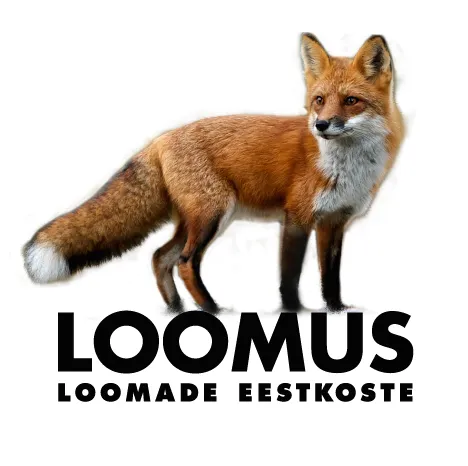Loomus: "The areas of activity of Loomus are broader than the resolution of one-off cases; the four fields the organisation deals with call for a change in thinking."
26.04.2016
What does Loomus do?
Loomus, an Estonian animal advocacy organisation, protects the interests and rights of animals and represents the interests of animals in social discussions. Above all, Loomus stands up for the animals used in agriculture, animal testing, the entertainment industry and fur production.
The goals of Loomus are to increase the importance of the subject of animals in Estonian society; to increase animal-friendly thinking, behaviour and consumption; to shape animal protection policy.
Why is it important to draw attention to your topic?
Animals cannot speak for themselves; they need an organisation of people who care about their well-being. The areas of activity of Loomus are broader than the resolution of one-off cases; the four fields the organisation deals with call for a change in thinking. The latter can only be achieved with long-term campaigns that concern every level of society.
What is the most recent activity or event that has taken place with the help of donors?
Some weeks ago, Loomus published the first animal rights book in Estonia, “On the Side of Animals”, with the help of donors. Some of the organisations to whom we sent the book are the Ministry of Rural Affairs, the Ministry of the Environment, the Veterinary and Food Board, the University of Life Sciences, and others as the well-being of animals depends on them.
Donations have also helped us organise several events. For example, Dr Melanie Joy, who is a psychologist, author and public speaker with a degree from Harvard University and teachers psychology and sociology at the University of Massachusetts Boston, recently visited Estonia. She introduced the term carnism to the people who had filled the hall in the Tallinn Teacher’s House to hear her speak. Carnism is an invisible system of beliefs that determines how we perceive meat and what we eat, why we love certain animals and eat others.
What is your view on the present donation culture in Estonia? Can donors tell the difference between capable and less capable organisations, or is donating something emotional?
In the field of animal protection, people usually make emotional one-off donations in single cases. It is easy for a person who understands the unhappiness of a lonely animal and the hope that they will be cured/rescued. Unfortunately, it is not possible to collect donations for rescuing specific animals in the field where Loomus works, e.g. helping animals living in fur farms or circuses. People who donate to Loomus must see the big picture and the connections as well as understand the necessity of lobbying and campaigns at a broader level.
However, the situation is not hopeless. Year after year, we gain new, regular donors and supporters even in this slightly complicated field of animal advocacy.
What is the most valuable gift ever made to your organisation?
Some wonderful person decided to pay the rent of the joint office of Loomus and two other organisations for a year.
It is difficult to say whether this gift is more or less valuable than the time the activists have given to the cause for years or decades on the account of other activities.
How much do you need volunteers?
Every day. We need translators and designers the most. We’re also looking for active project managers who show initiative. Any IT and similar support is always welcome.
What makes a good volunteer?
A good volunteer is one who knows why their help is needed and who needs it. We like to say that it’s not Loomus that needs help – animals need it. You should never forget this. Actually, one could even say that a good volunteer is an activist.
Can you remember a good story about volunteers?
Oh, plenty! It’s great when someone who has offered to volunteer is also connected to the field in some other way, e.g. they have worked in a similar organisation abroad or implemented some important activities at their workplace. For example, taken all of their colleagues to an animal shelter to help with their work, or helped collect signatures in favour of banning fur farms. By the way, there is this really cool woman in the animal protection circles who translates from Estonian into Russian. We only found out by accident a little while ago that the same cool woman translates texts such as press releases for almost all the local animal protection organisations, when we chatted with the Donation Environment about volunteers in our field. It was a really incredible discovery!
